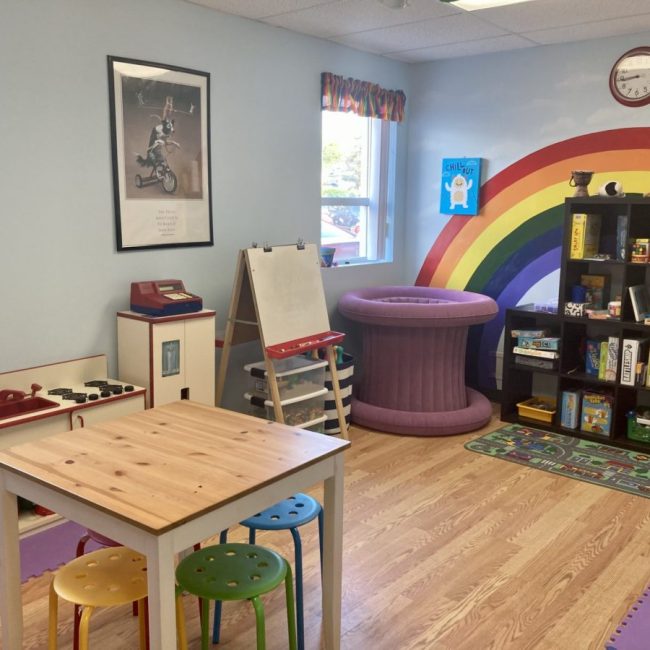
Play Therapy Can Be Helpful for Children Experiencing Emotional, Behavioral, or Developmental Challenges
By providing a developmentally appropriate, safe and non-threatening environment, play therapy can help children learn emotional regulation, strengthen parent-child relationships, and develop problem-solving skills.
Potential Benefits of Play Therapy:
Developmentally Appropriate: Play therapy is developmentally appropriate for children, as it allows them to communicate their feelings and experiences through play rather than language. This can help children who may not yet have the verbal skills to express themselves effectively.
Safe and Non-Threatening Environment: Play therapy provides a safe and non-threatening environment for children to explore their emotions and experiences. This can help children feel more comfortable opening up and sharing their thoughts and feelings.
Improved Emotional Regulation: Play therapy can help children learn and practice emotional regulation skills, such as identifying and expressing their emotions in a healthy way. This can lead to improved emotional regulation and a greater sense of control over their emotions.
Strengthened Parent-Child Relationships: Play therapy can help strengthen parent-child relationships, as parents may participate in the therapy sessions and learn new ways to communicate and connect with their children.
Improved Problem-Solving Skills: Play therapy can help children develop problem-solving skills and learn new ways to cope with challenges. This can help children develop resilience and improve their overall well-being.
What to Expect
- Compassionate Approach
- Evidence Based Techniques
- Safe and Inclusive Space
- Non-Judgmental and Supportive

Frequently Asked Questions
Do you accept insurance?
Yes, Kaleidoscope Mental Health Counseling accepts insurance. Visit our Getting Started page for a list of insurance providers we accept.
Do you offer online therapy?
Dana Ellis offers therapy online or in person.
What areas do you specialize in?
Dana Ellis primarily works with neurodivergent populations. She specializes in working with anxiety, ADHD and autism spectrum disorder. Dana’s goal is to help each of her clients, no matter how young, realize their fullest potential.
Visit our Services page for more info and a full list of specialties.






